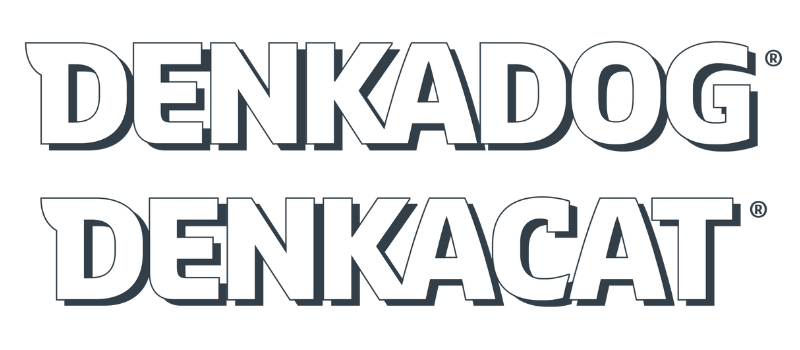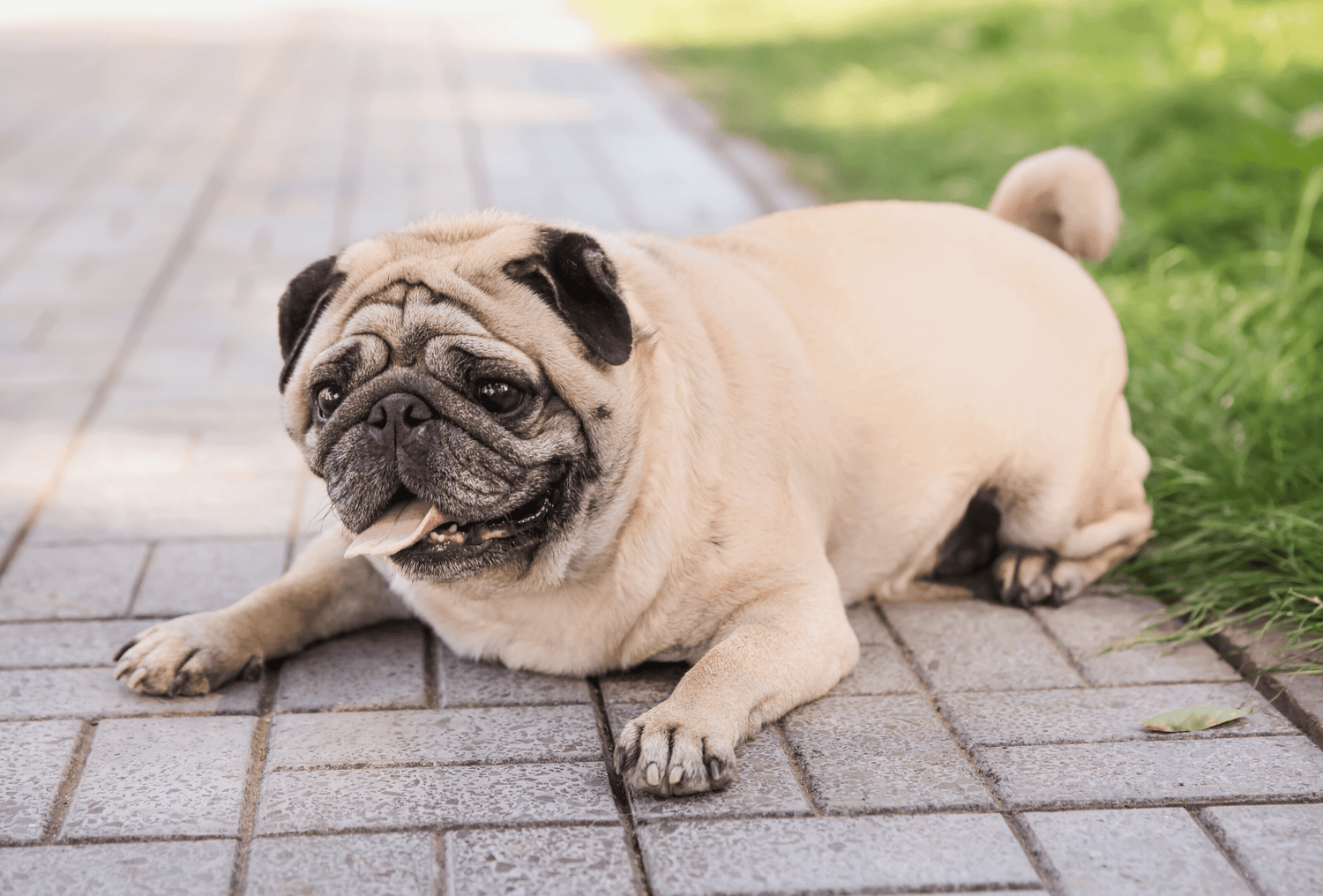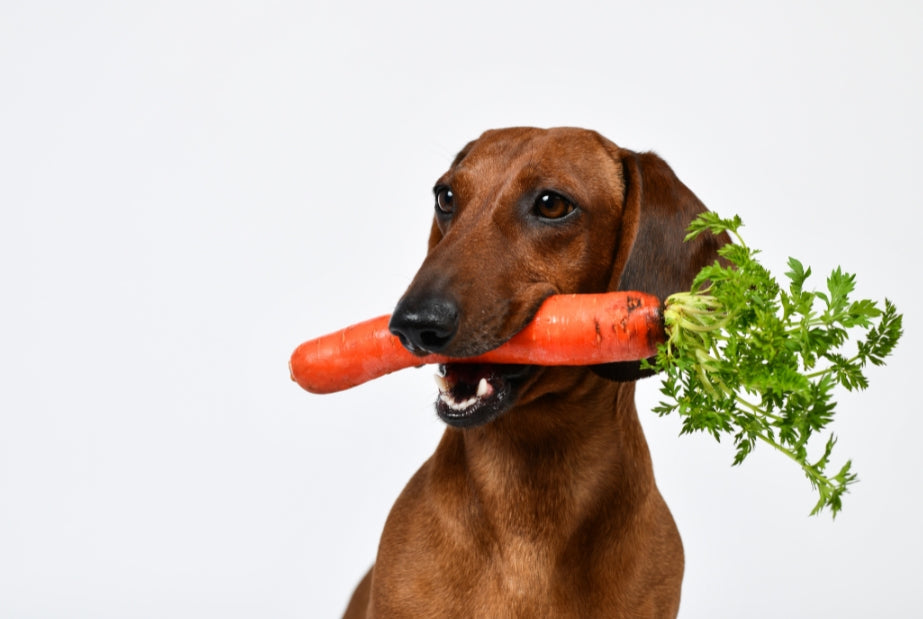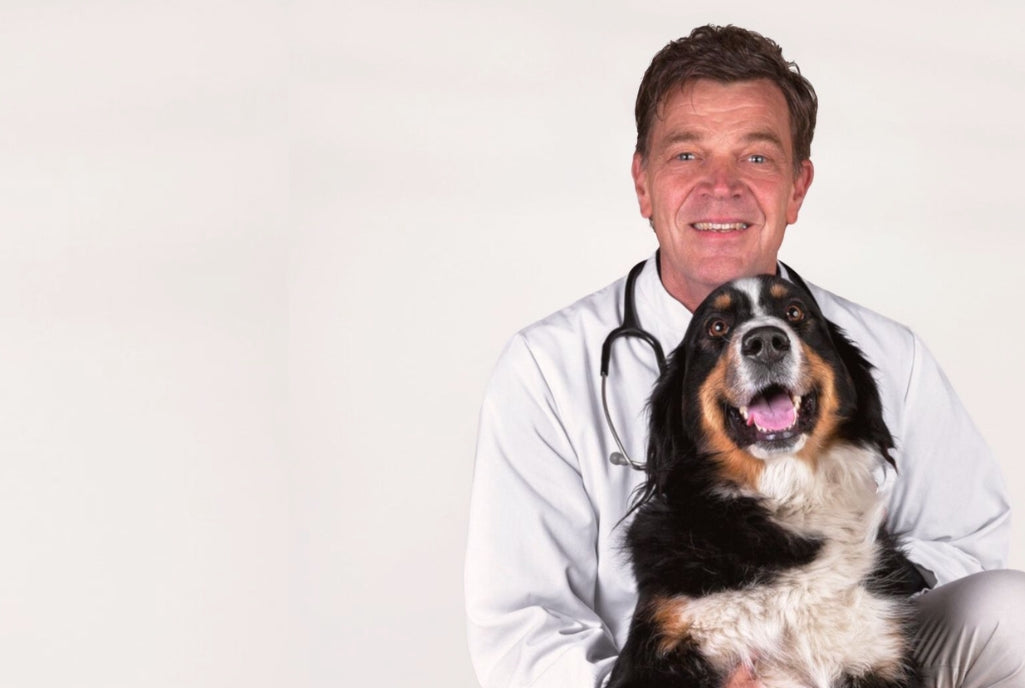Solving Obesity in Dogs
The first advice from our vet when losing weight is to exercise enough to promote weight loss. Secondly, a good diet is important. Also pay attention to the snacks that are given in between. We advise to give a light diet with few calories. The food contains less fat, but provides all the necessary needs of the body. Your dog will not lack any vitamins and minerals. This food is also called a diet food.
A weight loss program comes down to; more exercise and the right nutrition .
We recommend using special food such as Denkadog Hypo-Weight .
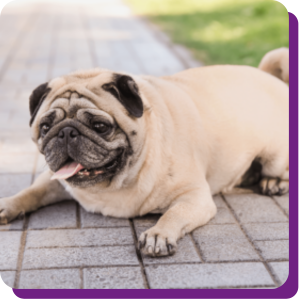 Practical example
Practical example
Losing weight too quickly is unhealthy. To lose weight healthily, the weight loss should be 1% of the weight per week.
Overweight – desired weight = losing weight
30 kg – 25 kg = 5 kg
In this example, if you lose 1% of your weight per week, 1% of 30 kg is 0.3 kg
Time needed to reach correct weight = 5 kg / 0.3 kg = 16.6 weeks
Weight loss may be 1% of the weight per week. On average, it takes a few months for your dog to regain its correct weight. This indicates that you as the person responsible for your dog must be absolutely well motivated and must remain so to achieve the result.
10 Benefits of Denkadog Hypo-Weight
- Contains few calories and less fat.
- Provides a feeling of satiety and therefore prevents hunger.
- This diet prevents or reduces obesity.
- Your dog can eat the same amount and still lose weight.
- Feeding several small portions will fill your dog's stomach without encouraging fat storage.
- The special recipe with herbal extracts promotes digestion and ensures that your dog loses weight or maintains the same weight.
- The unique formula takes the kidneys, heart and blood vessels into account, through a lower protein and salt content.
- No colourings, fragrances or flavourings have been added.
- Prevents obesity-related complaints such as joint wear and tear.
- A diet food for dogs with a health problem.
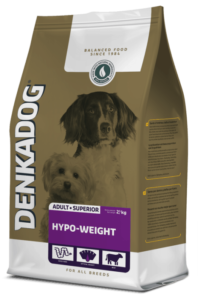
Facts about obesity in dogs?
- Although being overweight may seem harmless, being overweight causes long-term damage;
- It is not just about too much subcutaneous fat tissue. Organs such as liver, stomach and intestines also suffer from too many fat cells that hinder their function;
- We speak of overweight when the body weight is more than 15% too much;
- Neutered and spayed dogs are twice as likely to be overweight;
- Metabolic and physical activity decrease, resulting in a reduced need for energy;
- Health risks are increasing;
- Shorter life expectancy due to increased risk of: heart disease, high blood pressure, lung problems and weight problems;
- Obesity also reduces your dog's stamina, causing him to move even less and easily gain weight again. This creates a vicious circle;
- Nutrition, exercise and mind set are the pillars of an effective weight loss program.
- Obesity puts an extra burden on muscles and joints, causing them to wear out faster;
- In large heavy breeds, attention will also have to be paid to the joints. Arthrosis is lurking in these dogs. Also read our blog about joints and bones.
Causes of obesity in dogs
- Abundance of food;
- Too many snacks;
- Castrated or sterilized dogs are more likely to become overweight due to the changed hormonal balance;
- Breeds prone to obesity: Labrador Retriever, Golden Retriever, Cocker Spaniel, Cairn Terrier, Cavalier King Charles, Beagle, Basset Hound, Shetland Sheepdog, Long-haired Dachshund, Shelties, Rottweilers and crossbreeds;
- Not enough exercise.
How do you assess overweight in a dog?
Side view of dog
- When the dog is lying down the ribs should be palpable but not visible;
- When the dog jumps or stretches, ribs should be visible.
Top view dog
- There must be a visible waist.
What does energy consumption depend on?
- Maintenance of the body is about 60 to 80% of all energy;
- Movement, walking is about 10 to 20% of all energy;
- Adapt to higher or lower ambient temperature;
- Digestion (work) of food approximately 10%;
- By feeding it more often during the day, more energy is used for digestion and the animal loses weight easily.
How do you tackle obesity in your dog?
1. Weigh your dog
2. Determine the target weight
3. Calculate how much weight the dog needs to lose
4. Determine the timeline
5. Weigh the amount of feed (the amount of feed is stated in the booklet on the bottom of the bag)
6. Reduce feeding amount if many snacks are given
7. Exercise enough. This is of course different for each dog
8. Weigh monthly
9. Determine if timeline needs to be adjusted
Castration and sterilization often have an effect on obesity
- When a dog is sterilized, its metabolism changes. Many dogs become fatter if their diet is not adjusted.
- There is a chance of incontinence problems.
- The procedure is performed under general anesthesia. This always carries a small risk.
- Castration and sterilization are irreversible.
- Especially castrated or sterilized dogs are prone to obesity. Due to the changed hormone balance, the energy needs of these dogs change and food with fewer calories is desired.
- No longer go into heat.
- Have less chance of a uterine infection.
Benefits of castration of male dog
- Have less territorial instincts.
- Will be less likely to run away to look for bitches.
- Become less bright.
- Have less chance of developing foreskin inflammation.
Follow us also on Social Media
